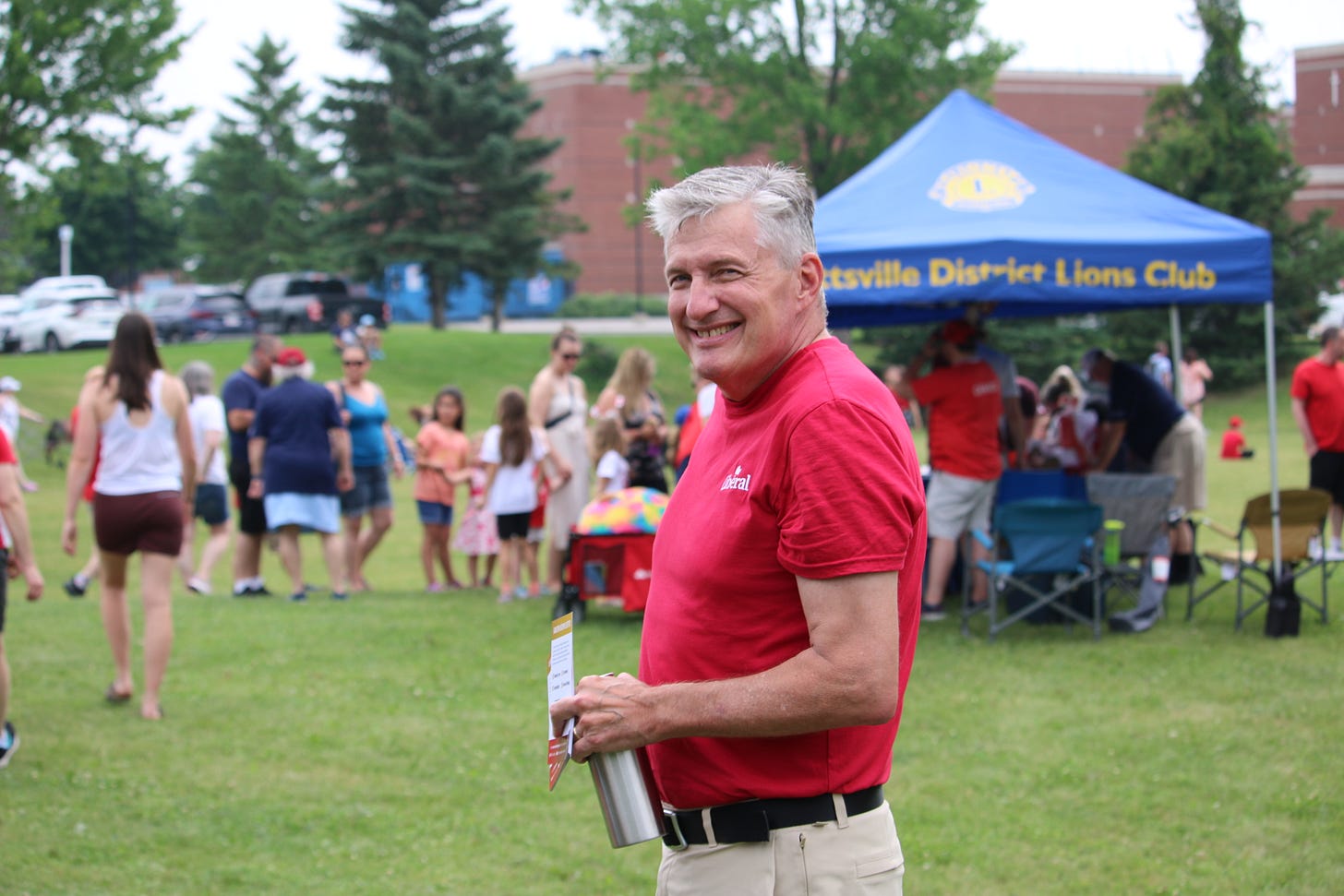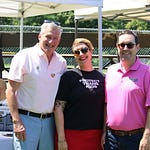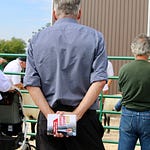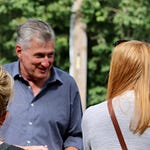The book is available in print, ebook and audio book formats.
How do you like them apples?
Pierre Poilievre won the leadership of the Conservative party on the first ballot in September 2022. It wasn’t even close. His fundraising was almost as unprecedented as the size of his margin of victory. The party was surging in the polls, especially when compared to a COVID-tired Justin Trudeau, and it was flush with cash.
Before going further, it’s important to acknowledge just how sick and tired of Trudeau a majority of Canadians were between the convoy and Epiphany (as it were) 2025.
I confess I never quite understood why so many people were suddenly so done with him. But then I also didn’t understand why he was so incredibly popular in 2015. To me, he was always the same fellow. A good man, with a few good ideas, graceful under pressure and constantly under-estimated. You could like him for that or not, but what I never grasped was how so many could love him then want him gone, given how consistent Trudeau was at being himself the whole time.
Trudeau was never especially keen to think or talk or do anything much about the economy, both in general and in particular. He governed from the left of the Liberal Party. He was an ardent feminist, except for how he treated the few women who didn’t go along with his plan. We don’t need to prosecute that in this short book about Fanjoy and Poilievre, but it’s important to note that Trudeau had lost a great deal of support because of how he treated Jody Wilson-Raybould, Jane Philpott and, near the end of 2024, Chrystia Freeland. Some of the prime minister’s former colleagues could name more names, but the point is made. Those lost supporters would not come back to the party until Trudeau left it.
The people who ran the Liberal campaign once Mark Carney was elected leader of the party knew that. They never called on Justin Trudeau to campaign for them. They knew he was a drag. Instead, they reached back in time to Jean Chrétien, who was only too happy to bring his p’tit gars schtick back onto the stage in his 90s.
Trudeau disappointed a lot of people, including those who wanted progress on advanced requests for medical assistance in dying. Or those who kept pushing for effective legislation on online safety against technology-assisted gender-based violence like revenge porn. He also let down those who didn’t think it wise to neglect artificial intelligence or to preside over a criminal justice system that is so overwhelmed with backlogs that delays now result in accused criminals walking free before a trial could take place.
Even in the best of circumstances, after a decade in office, it’s not hard to find people who are tired and ready for a change. Justin Trudeau had earned even more incumbent fatigue than that.
Poilievre was good at making mileage on it. He also had a good plan to talk about affordability, a theme that struck young voters as especially important in a society where most of them can’t afford to buy homes unless they get help from their parents.
The problem for Poilievre was his tone. He was condescending and unpleasant. And he kept talking about how Canada was broken, how everything was awful.
Also? He peaked way too early.
In 2022 and the first half of 2023, Poilievre’s tactics worked well for him. But then in October 2023, winds started to shift in a bucolic British Columbia orchard, when Poilievre posted a video of himself chomping on an apple while rudely interrupting a local journalist who was trying to ask him questions.
The title of the video is “How do you like them apples? — Part 1.” It went viral, and not just in Canada. Many people liked it, many didn’t. It kind of depended on whether you think all mainstream journalists deserve to be interrupted and humiliated for their perceived collective sins, not the least of which being that they ask questions politicians don’t always like.
Fun fact, there is a Part 2 to that video, though it’s nowhere near as famous. I’d never seen it until I went looking for it while writing this book. In it, Poilievre praises a man who arrived in Canada as a kid one Sunday, and started picking fruit the next morning. This man has been picking fruit without interruption for 60 years, the video explains.
Allow me a short interlude here, to express sympathy for people who show up and work hard. Like public school teachers, say. Or social workers.
I find it weird that Poilievre only seems to care about people who work hard in physically demanding jobs. Immigrants like the fellow in the second apple-munching video get all the praise from conservative politicians and I’m not saying they don’t deserve it. But why nothing for, I don’t know, project managers who work in government? They vote, too.
In the second part of the apple munching video, Poilievre speaks with other people about taxes that are way too high. In fact, that second video is the kind of performance that made Poilievre so popular for two years. It was all about allowing people to run their lives the way they see fit and ensuring the government is efficient so people can keep more of their money. He was still eating that damn apple but not using it as a weapon of derision.
When the first part of the video went viral, Bruce Fanjoy saw an opportunity to differentiate himself from his main rival in Carleton, as someone who doesn’t mind media scrutiny because he understands everyone has a job to do and a role to play in this democratic exercise.
Fanjoy, like most Canadians, is polite and courteous unless he has a good reason not to be. It’s fair to say the apple interview struck many of us as unnecessary, mean and unpleasant. Kind of like the trucker occupation of Ottawa, which had left a very bad taste in the mouth of so many people who live in the national capital region.
At some point not too long after the viral video was starting to fade, Fanjoy went to a local café with his wife to eat some apple crumble. Donna took a picture of him looking forward to the treat, and just like that, with no fancy team or budget, a clever social-media rebuttal was born.
The tone of the replies from people who thought being disrespectful to journalists was hilarious but that eating an apple dessert wasn’t, told us he’d hit the mark. Without being vulgar or nasty, Fanjoy had shown everyone he wasn’t afraid to stand up to a bully. And boy, did that ever upset the bullies.
What happened after this episode was the election of Donald Trump, the resignation of then-prime minister Justin Trudeau, the election of Mark Carney as Liberal leader and the immediate termination of the consumer carbon tax.
Within four months, the two main reasons for the Poilievre Conservatives’ commanding lead in the polls disappeared. And when Trump started with the 51st state business and imposed a chaotic regime of now-you-see-them-now-you-don’t tariffs, the Canadian electorate went from desperately wanting to replace Trudeau at all costs, to not wanting to trust maple-MAGA Poilievre with protecting Canada from Trump.
There would be no coming back.
Luck has a big role to play in politics. Mark Carney happens to have the perfect resume for the situation at hand, and just about every twist and turn of the campaign seemed to be breaking his way. Same thing happened to Bruce Fanjoy at the riding level. But don’t go thinking that luck just sprung out of nowhere.
Fanjoy had spent over two years knocking on over 15,000 doors in the sprawling riding, going through shoes like they were made of fudge. He talked to everyone he could. Made calls. Paid out of pocket to print information material. Went to rural fairs. Walked around at picnics, ready to listen to voters.
For two years, in 2023 and 2024, he did the work mostly by himself with a very small team of volunteers and family members who did what we could to help.
Bruce Fanjoy worked very hard, his efforts largely unnoticed by the media or anyone, really, outside the riding. When the time came for luck to play a part, it favoured the man who was an active presence in the riding and spoke to everyone he met, over the leader who took it for granted and only appeared at carefully scripted events.
Mid-way through the 2025 campaign, when the Liberals, led by Mark Carney, had reversed the Conservative lead and Fanjoy looked like he might just be able to pull off a victory over Poilievre, media outlets including the New York Times came to see what magic was at work in Carleton.
As someone who was there from the beginning, I can say there is not a single ounce of magic, or shortcuts, in Bruce Fanjoy’s electoral success. Just a few simple rules, and the discipline to follow them, especially on days when they don’t appear to work.
The secret to being elected is to convince the people in your riding that they should vote for you, not by bashing your opponents and certainly not by calling them childish nicknames. You get yourself elected by meeting as many voters as you can and giving them a positive reason to vote for you.
That’s it. It’s not easy, but it is simple.












